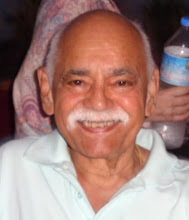Obesity apparently costs the UK £47 billion
a year. Saving just a proportion of this, say 10% will make a deficit reduction
larger than anticipated by the Chancellor in the first year of the new
Government.
Why are we fat?
Obviously because we eat too much and of
the incorrect mix of carbohydrates, fats, protein and fibre in our diet. Advice
about portion control and proper nutrition is the official response to the
problem but the odds are stacked against success. Processed, i.e. “bad” foods
are cheaper than more healthy ones and there is a link between poverty and
obesity.
The second reason is our general lack of
activity.
Dr Linda B. White, writing in the Healthy
Living website states:
Exercise is not optional. Your life depends
on it. According to the good Doctor, the benefits of exercise are many.
These include the maintenance of a healthy
body weight because bigger muscles burn up more fuel in the form of calories.
Bones thicken and joints become more flexible. The heart, lungs, nervous,
digestive and immune systems benefit. Sufferers from Type 2 Diabetes,
Arthritis, Depression and Parkinson’s have some of their symptoms alleviated by
moderate exercise. There are also claims that exercise enhances your libido and
extends life span.
Apathy is the challenge. A draconian
measure would be to tax sugar and trans fats as we do tobacco, but there isn’t
the political will and the ad spends on Soft drinks laced with sugar and high
fructose corn syrup dwarfs anything that public service advertising can mount. And then there are the promoters of fast food like the burger chains, with their salt and fat laced inexpensive
tasty products. The leading brand regularly appears in the top ten list of TV
advertisers.
But it can be done as Germany did in the
80’s. Then we used to laugh at them as the fattest people in Europe. Fortunately there are signs that the tide is turning. Childhood obesity
appears to be falling so a shift in public attitudes will be easier.
A Government Tsar should be appointed to
organise the drive. Then we can expand the reach and influence of the
relatively small public service health promotional budget by involving all
interested parties, including the NHS, the media, gyms, chefs and creative
advertising people.



